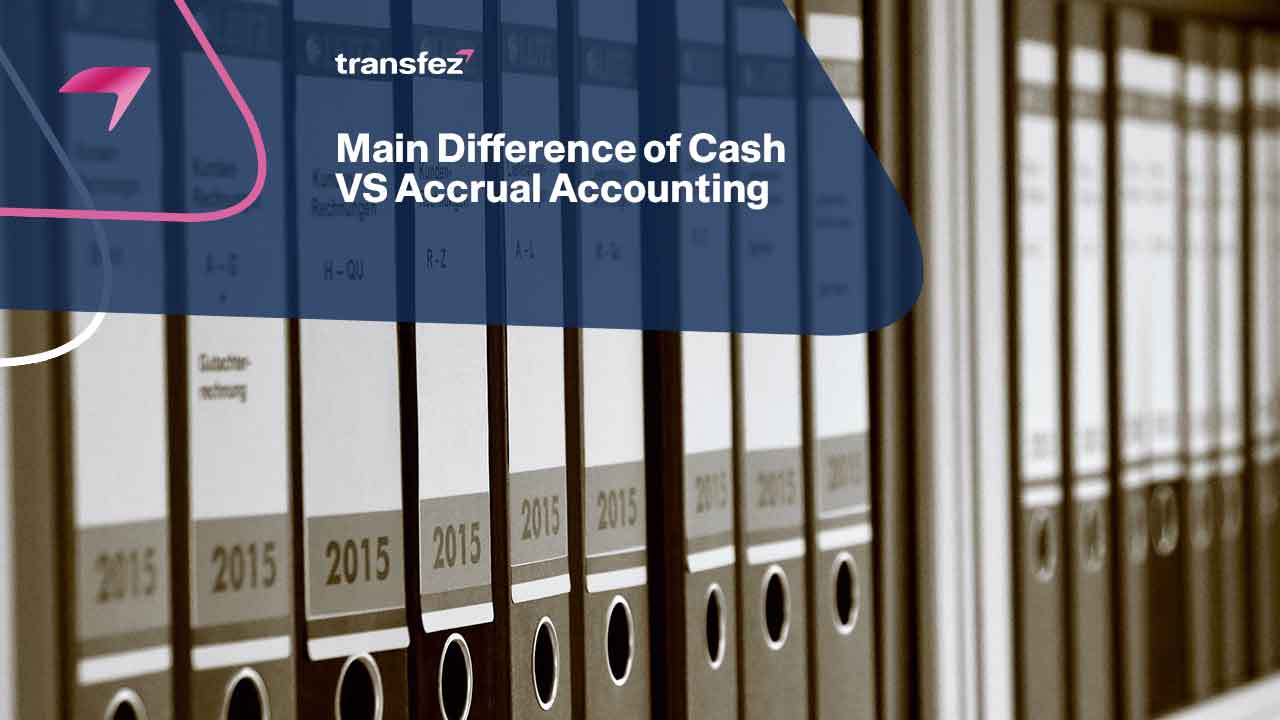
Bookkeepers, accountants, and small-business owners all rely on cash and accrual accounting to maintain their accounts. Both approaches Cash VS Accrual Accounting have valuable advantages, but they also both have significant drawbacks. As a result, you must choose the form of accounting that will serve as the foundation for managing the finances of your company.
Unless money leaves or enters your bank account, financial transactions won’t be recorded if you employ cash-basis accounting. Additionally, when using accrual-basis accounting, transactions are recorded as soon as an invoice or bill is received. Both accounting methods have benefits and drawbacks. For more detail on Cash VS Accrual Accounting, see the following paragraphs.
Cash VS Accrual Accounting Definition
Cash Accounting
According to this system, revenue is only recorded on the income statement upon receipt of cash. Only when money is handed out in cash are expenses documented. Small enterprises and individuals frequently employ the cash approach for personal finances.
Accrual Accounting
Revenue is recorded using this approach as soon as it is earned. The accrual method, as opposed to the cash method, records income when a good or service is provided to a client with the expectation that payment will be made later. In other words, funds are tracked before they are received. Similar to this, costs for products and services are noted before any money is spent on them.

Cash VS Accrual Accounting Methods
Cash Accounting Method
The simplicity of the cash system, which merely records cash given or received, is its main benefit. It is also simpler to monitor a company’s cash flow. It is advantageous to small firms and sole proprietorships since it won’t require more employees to utilize.
The cash accounting method, however, could exaggerate a company’s health if it has a lot of cash on hand. It is because it does not record any accounts payables that may exceed the cash on hand and the present income stream of the business. As a result, an investor may believe the firm is profitable while it may be having financial problems.
Accrual Accounting Method
The accrual accounting method keeps track of accounts receivable and payable. It can give a more accurate picture of a company’s performance over the long run. Cash flow is not monitored under the accrual technique. In the long run, a business may appear to be lucrative, but in the near run, it may be experiencing a difficult, significant financial shortfall.
The need to account for things like unearned revenue and prepaid costs makes the accrual system more difficult to employ, which is another drawback. Additional workers may be needed as well. Following generally accepted accounting standards established by the Financial Accounting Standards Boards, the accrual method is normally needed for businesses that provide audited financial statements.
See Video How To Easily Send Money International with Transfez

Strengths and Weakness Cash VS Accrual Accounting
Cash Accounting
The advantage of cash accounting is that it provides a picture of current finances and an examination of current cash flow. However, the flaws include a misrepresentation of long-term company patterns and a lack of compliance with Generally Accepted Accounting Principles.
Until you realize that many business owners do all of the work on a project months before getting paid, the cash way of accounting appears very sensible. And while cash-basis accounting might provide you with a fast, upfront view of the amount of cash you have on hand at any one time, it excludes the cost of accumulated but unpaid debts. Because you haven’t paid off any expenditures incurred throughout the month, one month may appear to be more profitable than it is.
Send Money Easily to Different Countries
How to Send Money to Hong kong
How to Send Money to China
How to Send Money to Malaysia
How to Send Money to Japan
Accrual Accounting
Strengths of accrual accounting include a depiction of current assets and obligations and a more realistic picture of long-term financial health. The drawbacks, however, include the possibility of paying income taxes on unearned income and a lack of transparency on imminent cash flow.
Accrual accounting concentrates on what you earned and what you owed within a specific period rather than obsessively focusing on the precise moment a transaction happened. You may learn more about long-term business patterns and your company’s overall profitability with the use of this information.
However, since the accrual technique does not strictly monitor your cash flow, it is up to you to accomplish it. After all, you run the risk of spending money that you don’t have if you have more accounts receivable than invoices paid.
Cash VS Accrual Accounting Accuracy
In general, Cash VS Accrual Accounting is thought to give a more precise long-term picture of the firm’s financial health. With this approach, businesses consider the projected cash flows for the now and the future, whereas cash accounting does not account for future unpaid invoices. Revenue may be progressively smoothed out with accrual accounting. Because revenues are incurred and invoiced but not yet collected, accrual accounting has the drawback of increasing the risk of bad debt. Additionally, if the benefit of smoothing income is used excessively, it may present chances for accounting fraud.
Download Transfez App
Transfez App can help you transfer money abroad more quickly and efficiently. Transfez Business can also help your business in making transactions abroad. For those of you who want to send money to relatives who are abroad because they are studying, working, or traveling, Transfez will be ready to help. This app is available on Android as well as iOS.
Closing and Conclusions
Accounting techniques like Cash VS Accrual Accounting are suitable for various businesses, sectors, and circumstances. Revenue and costs are recorded in cash accounting as soon as money is exchanged. Revenue and costs are recorded as they are incurred under accrual accounting. The hybrid approach combines aspects of both. You must evaluate your company’s financial status in light of the accounting regulations before deciding on your accounting system.











Recent Comments